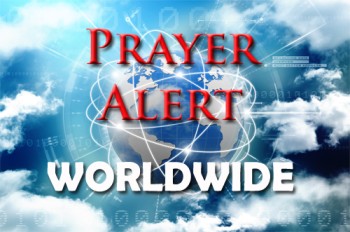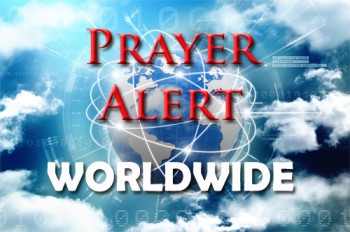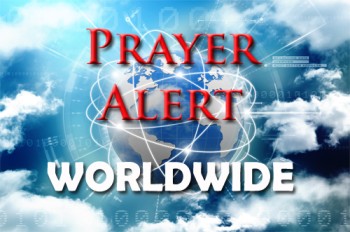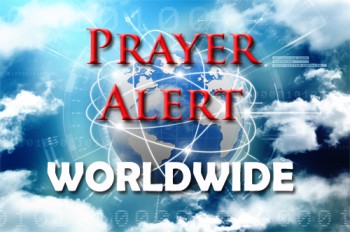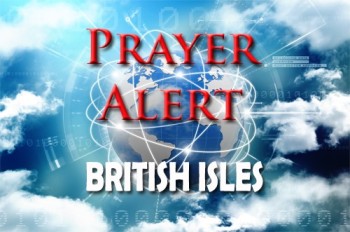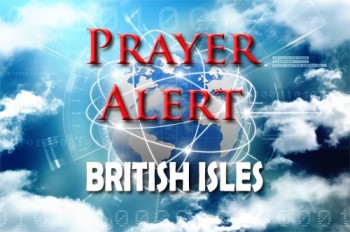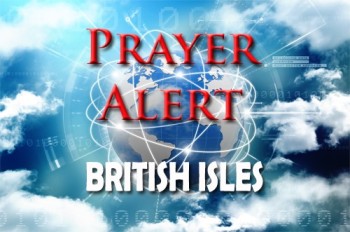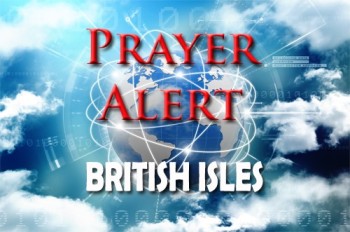
David Fletcher
David Fletcher is Prayer Alert’s Editor.
He is part of a voluntary team who research, proof-read and publish Prayer Alert each week.
If you would like to make a donation towards our running costs, please click here.
Cyril Ramaphosa has commenced his second full term as president, after his party formed a coalition government. In his inauguration speech, Ramaphosa highlighted the necessity for leaders to work together to address deep inequalities, warning that failure to do so could destabilise the nation. The ANC, governing since apartheid ended in 1994, lost its majority for the first time, securing only 40% of the vote and losing 70 seats. The Democratic Alliance (DA), which received 22%, and three smaller parties joined the coalition, having agreed a common agenda of fixing the country’s infrastructure, providing basic services such as water and power, and creating jobs. Ramaphosa has said that the country’s society remains deeply unequal and highly polarised, so he knows that there are some huge challenges ahead.
The UN has announced the delivery of aid to Haiti, which will help hundreds of displaced families due to the ongoing violence and the upcoming hurricane season. A spokesman said, ‘Two cargo flights organised by the World Food Programme (WFP) have landed in Port au Prince, carrying 55 tonnes of medicine, shelter and hygiene materials. The WFP school meals programme has distributed some 30 million meals across the country since the start of the current school year: of these, nearly 17 million have been provided through its programme which supports local farmers. The education sector has been severely impacted by the recent violence, with more than 200,000 children and 4000 teachers affected.’ Haiti’s hurricane season, which lasts from June to November, is forecast to be severe this year. A gang-fuelled crisis has devastated the country, and the UN estimates that currently 360,000 people are displaced.
Colombia’s migration agency has said it will give legal status to up to 540,000 Venezuelan migrants who are guardians to minors residing in the country. Colombia has been a destination of choice for millions of Venezuelans seeking to escape the political and economic turmoil of their homeland, while others have used the Andean country as a stepping stone onwards to other nations. More than 2.8 million Venezuelan migrants currently live there, and the measure will benefit adults taking care of some 270,000 minors who have permission to live there. The agency’s director said, ‘It's a special permission to stay, like the previous ones, which fundamentally seeks to integrate guardians, those people who have responsibility for minors who have a temporary protection permit and who live in Colombia’. In 2021, the then government said it would give ten-year legal status to Venezuelans living in Colombia, an offer taken up by many migrants.
Louisiana has become the first US state to order all classrooms, from elementary to university level, to display a poster of the Ten Commandments. The Republican-backed measure describes the commandments as foundational to state and national government. The law is expected to face challenges from civil rights groups, who will argue that it violates the First Amendment, which prohibits government establishment of religion. The commandments must be in large, readable font, next to a ‘context statement’ about their historical role in American education. There have been numerous legal battles over the display of the Ten Commandments in public buildings, including schools, courthouses and police stations. In the past, the Supreme Court has struck down similar laws, ruling that displaying the Ten Commandments in public schools lacked a secular legislative purpose and was inherently religious.
A dramatic rescue unfolded on a New Jersey shore, where John, a father, and his three young children nearly drowned after being swept out to sea by a strong rip current. John managed to keep his children afloat but struggled against the powerful waves, eventually being dragged under. A group of onlookers, including John DiAngelo, sprang into action. DiAngelo, a retired firefighter and experienced lifeguard, heard the children’s screams and rushed to their aid. Once they were safe, he returned to rescue their father, who had been submerged for several minutes. He performed CPR until John regained consciousness. DiAngelo credits divine intervention for the timing and successful outcome of the rescue, calling it a 'literal miracle’. The family was taken to hospital and is expected to recover fully. DiAngelo's actions and faith serve as a powerful reminder of the importance of readiness and the belief in a higher power guiding our actions.
Jacob, an immigrant from Cameroun, endured a harrowing journey to the United States. Fleeing political persecution, he faced multiple hardships, including beatings and imprisonment in various countries along his route. Despite these challenges, Jacob’s faith remained unshaken. Upon arriving in the USA, he found refuge and support from a church community in Texas. Recognising the hardships faced by immigrants, Jacob decided to turn his painful experiences into a ministry, helping others who are navigating similar struggles. He established a support network providing food, shelter, legal assistance, and spiritual guidance to new immigrants. Jacob believes that God used his trials to prepare him for this mission, and he now sees his journey as a testimony of God’s faithfulness and purpose. His ministry has grown, impacting many lives and offering hope to those in dire circumstances. Jacob's story exemplifies resilience and the power of faith, transforming suffering into a source of strength and service.
Trust and confidence in the UK’s political system have reached an all-time low, according to a report for the National Centre for Social Research. It reveals that a record number of voters almost never trust the Government to prioritise the country's interests over party politics or believe politicians to be truthful in challenging situations. Disillusionment, particularly among Brexit supporters, is cited as a significant factor, with Brexit not delivering the anticipated outcomes. Other contributors to this distrust include political scandals and the cost-of-living crisis, with those struggling financially expressing significant discontent. The report, entitled 'Damaged Politics’, shows that 45% of voters do not trust the Government to prioritise the country, 58% doubt politicians' honesty, and 79% believe the governance system requires substantial improvement. Additionally, 53% of respondents support a fairer voting system for smaller parties, highlighting dissatisfaction with the current first-past-the-post system. Public comments reflect a strong desire for truthful politicians and systemic reforms to restore trust and accountability.
A recent report highlights that more than half of UK students are working long hours in paid jobs to support themselves through their studies. 55% of students work an average of 17 hours per week. Some work over 35 hours, impacting their academic performance and mental health. Rising living costs and insufficient student loans are primary reasons for this trend. Students from disadvantaged backgrounds are disproportionately affected, often having to choose between work and study. Many students report feeling stressed and fatigued, which affects their ability to focus on their coursework. The report calls for increased financial support for students and better job flexibility from employers to accommodate their academic commitments. These findings underscore the need for a systemic approach to address the financial pressures faced by students in higher education.
The future of the established Church of England was the focus of a recent conference in Oxford. Scholars, clergy, and laypeople gathered to discuss the challenges and opportunities facing the Church in modern society. Topics included declining attendance, the Church’s role in public life, and the need for renewal and reform. Keynote speaker Professor Sarah Foot emphasised the importance of the Church adapting to contemporary cultural shifts while maintaining its theological foundations. Discussions highlighted the tension between tradition and innovation, with many calling for a renewed focus on community engagement and social justice. The conference underscored the urgency for the Church to find new ways to connect with a diverse and often secular population, while preserving its core mission and values. Participants left with a sense of both the challenges ahead and a commitment to work towards a vibrant future for the CofE.
A concerning report reveals that over 380,000 cancer patients in the UK have not been treated on time since 2015. This backlog is attributed to systemic issues within the NHS, including staff shortages, increasing patient numbers, and the impacts of the Covid pandemic. The delays have serious consequences for patients, as timely treatment is crucial for cancer survival rates. The report urges substantial investment in the NHS to address these issues and improve cancer care. Health professionals and patient advocacy groups are calling for immediate action to ensure that cancer patients receive timely and effective treatment. The Government acknowledges the problem and has promised to work on solutions, but there is widespread agreement that more needs to be done quickly to prevent further harm to patients.

